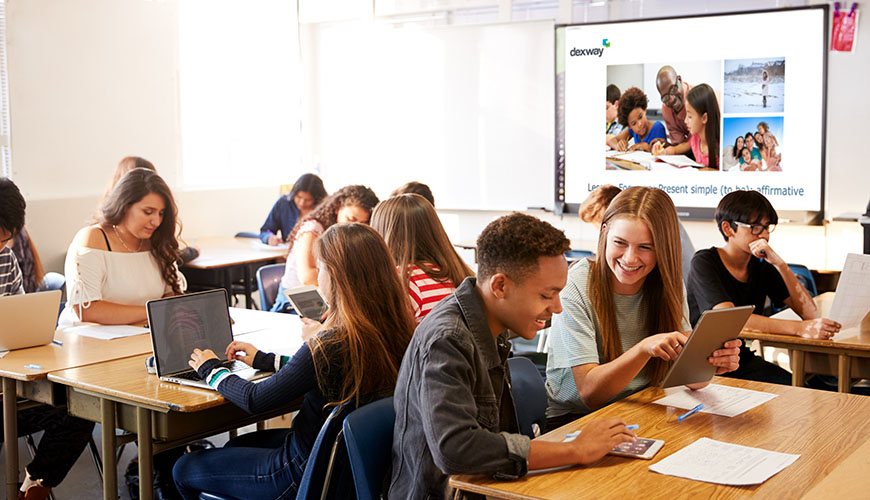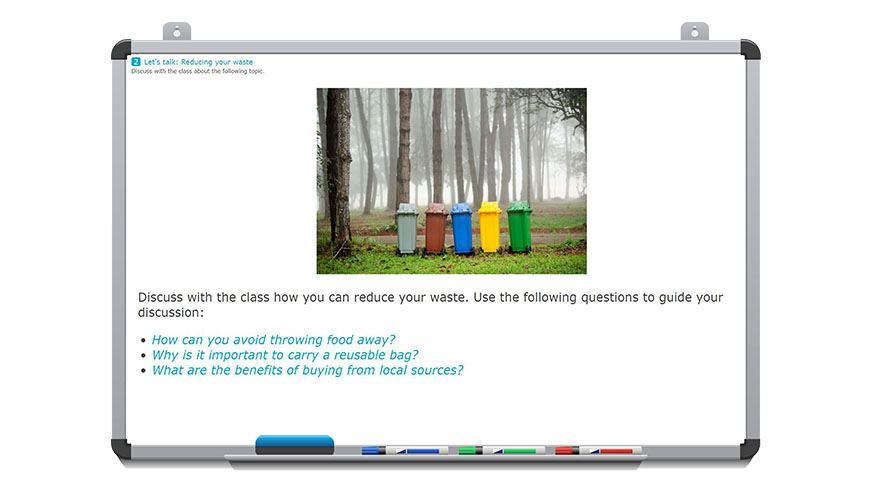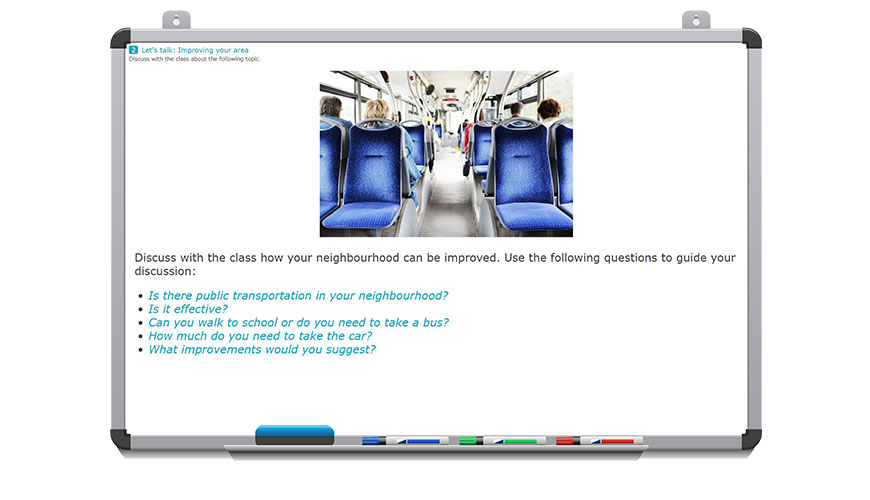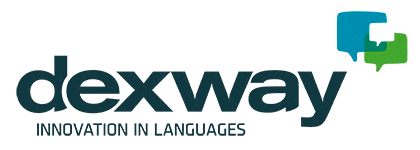Would you like to transform your language classes into spaces that promote change and sustainable development? Discover how to work on SDGs in language classrooms and give your students an education that transcends language! In a world increasingly aware of the importance of sustainability (at all levels), teachers must play an active role in addressing SDG issues in class, including in language.

The UN collects in its web 17 goals that are part of a new sustainable agenda. This agenda, often called “2030”, aims to create a future where poverty is eradicated and the planet reaches global prosperity. Some of these SDGs are “Zero Hunger”, “Clean water and sanitation”, “Climate action” or “Responsible production and consumption”. It is essential to make visible in the classrooms the problems the United Nations is pointing to and which concern a large part of society. Hence, the six courses of Dexway Method Face-to-face (Dexway in Person) work on these 17 topics in their lessons.
Benefits of working on SDGs in language classrooms:
There are many benefits to working on sustainable development issues. In addition to enriching learning, it has been associated with a number of additional factors that help the typical maturity process of the secondary and high school ages, for which Dexway In Person Method has been set up. Among the main advantages of opening these discussion topics in class, we find:
#1 Development of critical thinking
Your students not only learn to express their opinion in another language but at the same time they develop their critical spirit with the exchange that takes place among them. If we only stay in the typical cases of presentations and simulations, students are normally less involved in the class.
#2 Fostering respect among peers
Not everyone can agree. And it is in Secondary and High school that there is a convenient age to start learning to respect the ideas of others. Also, to debate in turn, without speaking out, and to use constructive arguments. Only then can it be a peaceful exchange that enriches the content of the class and promotes participation.
#3 Global Awareness
Working on these topics in language classes not only has educational benefits but also social advantages. It is possible that for many students this is the first time they approach these types of topics and by knowing them, students can be aware of their importance. Making the 17 topics highlighted by the UN visible, will make students more aware of their environment and the consequences of their own actions.

#4 Momentum for action
Dealing with these issues in the classroom can generate as a consequence the impulse to get involved in the problems that the SDGs indicate. By addressing them in class and proposing solutions, students can be inspired to help alleviate these inequalities and difficulties both individually and collectively.
And what specific benefits does it have in face-to-face language teaching?
If working on SDG topics in the classroom we have seen that it has key advantages for young people and adolescents’ personal development, the advantages cannot be fewer in the language classroom. In language teaching, there are many objectives that manage to address these topics. Dexway’s pedagogical department partners with its teaching staff to ensure that course goals are met through all kinds of resources, including exercises, videos, or discussions about SDGs. In high school, Dexway introduced activities that made English a transversal subject thanks to tasks on history, science, or literature, and the introduction of objectives and goals of sustainability, equality, or inclusion, following the same trail.
#5 Motivation through topics that arouse interest
Only if the right topics are presented at each growth stage can wide participation in class be achieved. We are sure that your students have a lot to say, they just expect a good opportunity for it. What better than a topic that piques your interest?
#6 Enrich your opinions in other languages
Social networks, exchanges, tourism… today there are multiple occasions in which young people have the opportunity to interact with other people of their age in a different language. Practicing in class these types of subjects enrich your vocabulary in such encounters. And not only the vocabulary but also the fluidity and speed of reaction to process this type of information.
#7 Strengthening of the vocabulary
Memorizing vocabulary lists is a thing of the past. Interactive exercises, multimedia tasks, and open discussion sessions are much more effective methods. They are an easy way for students to learn to use in correct contexts the vocabulary that each lesson adds. As well as expand their ability to comment on any topic in other languages. In fact, only if they are able to use the new information wisely can they demonstrate that they have made a good understanding of the syllabus, beyond memorizing nonsense.
Addressing SDGs in Dexway In Person courses
At Dexway we always strive to go further and offer quality language education, in any modality (blended, online, In Person, laboratories). Our courses make sure to provide complete learning, without gaps. And, above all, interactive and constantly evolving, so that students can easily achieve the level objectives they pursue in their schools and institutes. We are aware of the responsibility involved in educating adolescents and young people, so we are committed to bringing relevant topics of current interest to the classrooms. That’s why we help your faculty work on SDGs in language classrooms.

17 development goals at Dexway
Therefore, in the Dexway In Person Method courses we have introduced new content that will allow your teachers to easily address the 17 SDGs identified by the UN. In this way, you can help your students express and forge opinions fluently in English on topics of interest. Our pedagogical department helps your teachers to determine all the contents and their order, so tasks and discussions are introduced when the teachers deem it appropriate, according to their own course curriculum. Or even at the moment that the present highlights them.
These secondary and high school courses offer the opportunity to unify objectives and the level of individual and collective learning. In this way, the teacher manages at all times, and in real time, the performance information of students. And they feel wrapped by a natural method that accompanies them in the classroom and at home; a coherent and adapted continuity and progression.
In summary, addressing SDG issues in the language classroom develops critical thinking, helps make social problems visible, and motivates participation. It also helps broaden students’ perspectives and thinking and strengthens their vocabulary with little effort. And for that reason, at Dexway we have implemented proposals based on Sustainable Development Goals to enrich classroom time.
You may also like:

